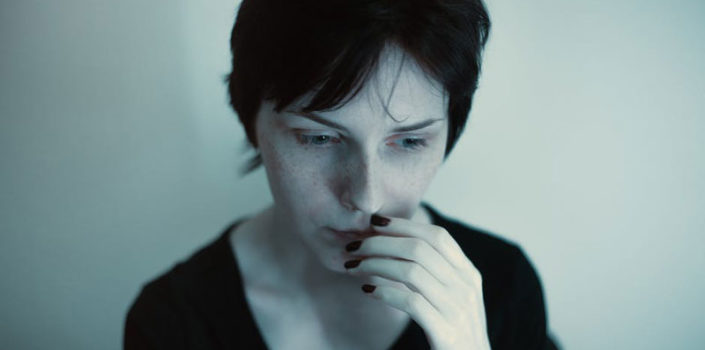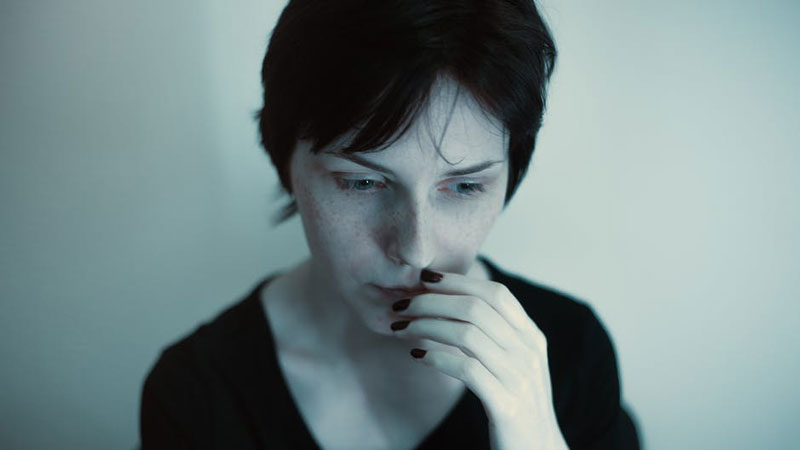5 Reasons How Increased Anxiety Leads to Decrease in Appetite

Anxiety is something that impacts a lot of us in modern times. And millennials cannot be blamed, really. With social media and technology affecting us, reduced exposure to nature and unhealthy work patterns; it is becoming increasingly difficult to deal with life. 21st century people are continually living in environments curated for excessive stress, anxiety, depression and a host of other issues – which can take a negative toll on some of the most important components of health and well-being, like appetite. Therefore, we list here 5 reasons how increased anxiety leads to decrease in appetite- be sure to steer clear of these!

1. Negative Internal Feedback Mechanism
With increased anxiety comes negative internal feedback. Your brain is always telling you that nothing good is going to come out of what you put all your efforts in. This negative feedback affects your self image and productivity, and in turn you end up feeling like nothing is important, not even eating proper food. Give this a wide berth because no matter how you feel, health, food and productivity are all important, and mutually re-enforcing.
2. Lack of Efficiency
When anxiety kicks in, you start thinking that you won’t be able accomplish what you desire. Once that happens, you begin to put in corresponding amounts of minimal effort. With that you expend less energy, and feel less hungry. You feel like you do not deserve to be taken care of, and start adopting unhealthy food routines. Moreover, when you do eat, you consume unhealthy, calorie-loaded junk food which kills further appetite for the next meal.
3. Lack of Exercise
Once you feel very afraid of failure, and as if nothing truly matters in life, you are bogged down mentally and greatly exhausted. You do not have the energy remaining in you to take up reins and get extra calories busting at the gym. But beware, this cycle has extremely toxic repercussions- decreased exercise leads to reduced appetite, which affects your productivity levels to up your anxiety again. So be sure you do not give the gym a miss, whatever your brain tells you to.
4. Low Performance and Efficiency Levels
With increased anxiety in your brain, you automatically start working less and consequently achieving less. Or in a different scenario, you might have achieved less even after working hard, which might have kicked off the anxiety in the first place. If things go on either way, your performance levels are bound to take a hit. And let’s face it, no one feels very motivated with a not-up-to-the-mark performance. Everything ultimately leads to little work done, no exhaustion and hence, you are left with little urge to eat! This is how anxiety related low performance levels guarantee decreased appetite.
5. Social Pressure
There is a huge stigma surrounding mental health issues, which fortunately have gone down of late. But nonetheless, it persists. Friends leave once you’re cooped up in you room with anxiety, bosses frown at your decreased work output, family looks at you queer and even random acquaintances start to judge you harshly all of a sudden. Is it easy to cope with all that unwelcome negativity in your life? No, absolutely not. And can your already dwindling appetite cope with it? No, either. That is how anxiety’s social manifestations lead to a decreased appetite.
Anxiety is a serious psychological problem, and needs expert guidance to come up with a solution for. Medication and counselling is strongly advisable, and do not try to deal with it alone. Amidst a plethora of ill effects, a very tangible effect is the complete reduction of healthy, normal appetite due to anxiety. There are social, physiological, mental and professional reasons why this is true. Remember there are some golden rules which can help you even in these difficult phase of life: you can exercise, and constantly be engaged in activities which take your mind off the negative thoughts and keep flooding your mind with the positive ones. Who knows, you might even find some positive new interests you never thought you would, like J.K. Rowling, author of Harry Potter!